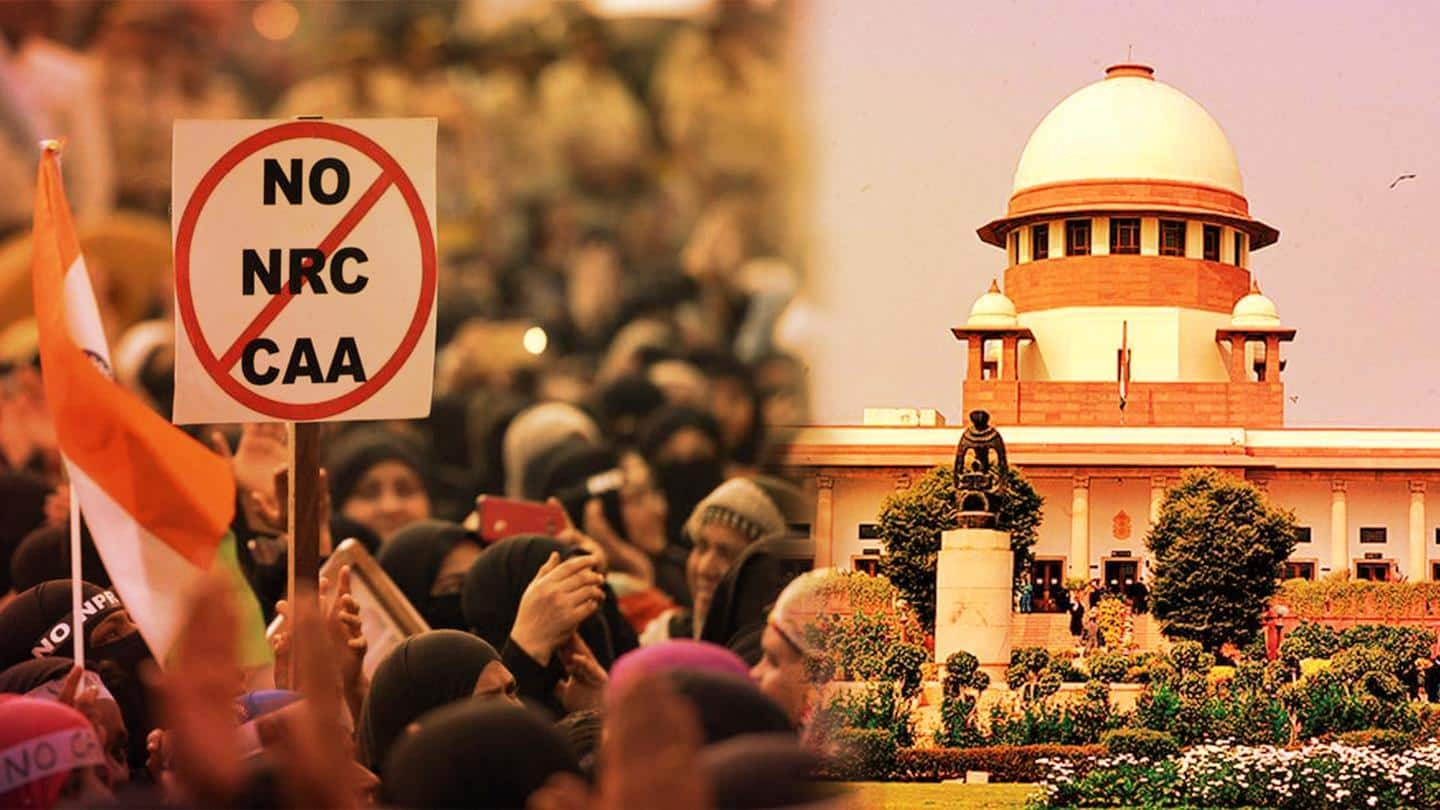
#NewsBytesExplainer: Status of CAA case that Supreme Court hears today
What's the story
The Supreme Court (SC) is expected to hear a batch of petitions challenging the Citizenship (Amendment) Act (CAA), 2019, on Monday.
A three-member bench led by Chief Justice UU Lalit would consider over 200 pleas contesting the CAA.
The last hearing in the pleas was held in the apex court in June last year.
Here's more about the case and its legal stand.
Context
Why does this story matter?
The development comes nearly a month after the Ministry of Home Affairs (MHA)—led by Bharatiya Janata Party (BJP) leader and Home Minister Amit Shah—sought fifth extension to frame CAA rules.
In 2020, MHA had said the process was getting delayed due to the COVID-19 pandemic, and that it would be undertaken after the vaccination drive begins.
Details
What does CAA say?
CAA seeks to make members of six minority religious communities—Hindu, Sikh, Buddhist, Jain, Parsi, and Christian—from Pakistan, Afghanistan, and Bangladesh, who visited India before December 31, 2014, eligible for Indian citizenship.
The act that was notified on January 10, 2020, also exempts members of these six communities from punishment under the Foreigners Act of 1946, and the Passport Act of 1920.
Protests
The law provoked widespread protests in 2019-20
The CAA instigated violent protests and riots across India between December 2019 and March 2020, killing 83 people in Assam, Delhi, Karnataka, Meghalaya, and Uttar Pradesh.
Protesters said it was unconstitutional and anti-Muslim, and argued that permitting foreign tourists would imperil the sensitive demographics of border communities.
In February 2020, anti-CAA protests also shook Delhi as communal conflicts killed over 50 people.
Details
Who had challenged the act?
The pleas were filed by some political parties and non-governmental organizations (NGOs) before the top court challenging the Act.
The petitioners included the Kerala-based political party Indian Union Muslim League (IUML), Trinamool Congress MP Mahua Moitra, Congress leader and former Union minister Jairam Ramesh, All India Majlis-e-Ittehadul Muslimeen (AIMIM), NGOs Rihai Manch and Citizens Against Hate, Assam Advocates Association, and law students among others.
Contesting pleas
Basis for the challenge
The statute was brought before the SC under Article 32 of the Constitution.
The primary grounds for the challenge are that the legislation breaches Article 14 of the Constitution.
The petitioners argued that under Article 14, no one can be denied the right to equality before the law or the equal protection of the law on Indian territory.
Proceeding
What is the status of the case?
According to The Indian Express, the contesting pleas have only received one substantive hearing since 2020.
In 2021, the Centre enabled collectors in 13 districts to accept citizenship petitions from groups designated in the 2019 amendment under the Citizenship Act of 1955.
The order was challenged by IUML, eliciting a reaction from the government, and the matter has not been heard since.
MHA
What stand did Centre take?
According to sources, the MHA stated in an application to the Supreme Court that the 2021 notification has no relevance whatsoever to the CAA (Citizenship (Amendment) Act, 2019).
The Centre specifically stated in the affidavit that the CAA does not breach any existing rights.
It was also claimed that the CAA did not violate any Indian citizen's legal, democratic, or secular rights.
Expectation
What is the way forward?
Legal experts think that the inclusion of the CAA case before the top court suggests that the hearing would be expedited.
According to them, some petitioners may also seek a referral to a bigger Constitution Bench. However, the challenge petition to legislation does not immediately require constitutional analysis.
These topics are also likely to be discussed before the court schedules the final hearing.